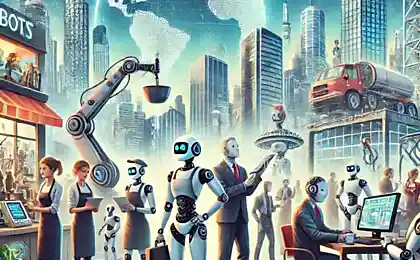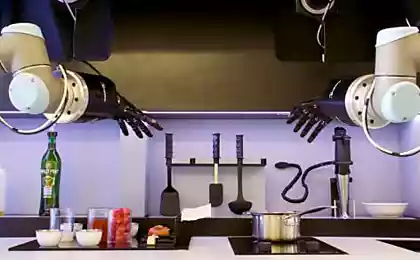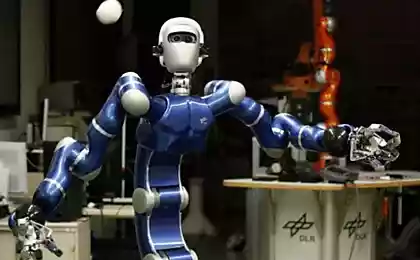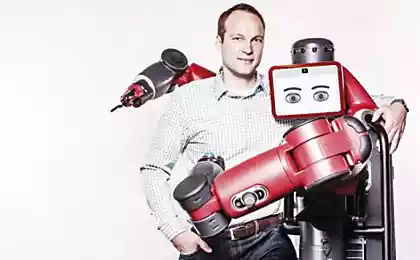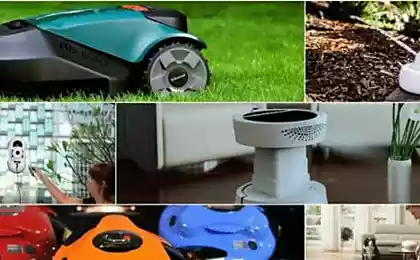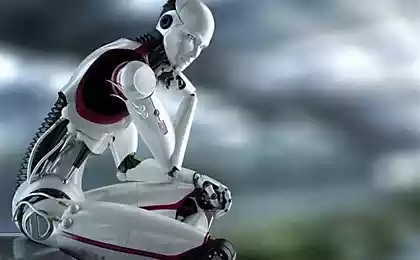422
The new matriarchy: why in the era of robots advantage — for women
Many economists and technologists believe that the world is on the brink of a new industrial revolution, which resulted in the success of artificial intelligence is rapidly doing unnecessary human labor. Two researchers at Oxford University recently studied the skills needed for the more than 700 different occupations to see which of them will be exposed to automation in the near future. Bad news: in the decades of the machine can take about 47% of current jobs.
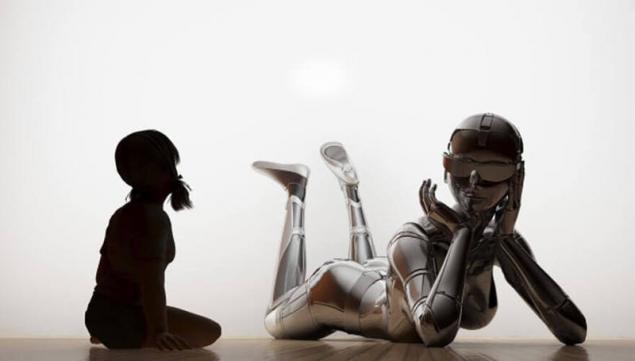
It's a grim forecast, but its effects are distributed across society is not uniform. Careful analysis of the data shows a surprising thing: those occupations that employ mostly women, more or less secure, but those which are generally men — at risk.
It is not surprising that despite advances in gender equality in the labour market, in many common professions, this is still far away. Of the 3 million truck drivers in the USA more than 95% of men. Of the nearly 3 million secretaries and assistant heads of more than 95% women. Self-governing automobiles — it's not-too-distant future, and their appearance will destroy the jobs of millions of drivers. But the place of office assistants do not face such a threat in the near future.
Or, for example, men in the United States occupy 97% of jobs in construction and carpentry. The Oxford researchers believe that with a probability of more than 70% of these men giving their jobs to robots. In contrast, 93% of registered nurses (and nurses) are women, and the risk of obsolescence of the profession is negligible — 0,009%.
What is the matter? The skills of the coming wave of intelligent machines are more suitable for professions is now dominated by men. Many of these occupations rely on the attentiveness and physical manipulation, and the latest robots have advanced systems of sensors and dexterous manipulation system objects, allowing you to successfully complete such tasks. Other, more intellectual profession dominated by men, is also in danger. This, for example, work that requires experience and fine judgment — for example, trade on the exchange. These workers begin to get around more sophisticated machine learning systems, which are quickly snatched subtle patterns in large volumes of data.
Women, by contrast, often work in more chaotic, less structured environment where success is important for the ability to read the emotions and intentions of other people. If your work requires the ability to distract the patient during the injection, the ability to understand what he wants a crying baby, or Express sympathy and to calm down an angry customer, you need not worry that the robot will take your job in the foreseeable future.
So what comes out will be good as these new machines? To start the tasks that are easy to formulate, where there is an objective criterion of success. Such requirements engineer can encode in the form of programs and easily evaluate the results. It is clear that you need to do the robot-painter, and it is easy to see whether he fulfilled his task correctly. But it is more difficult to determine whether the patient is suffering from dementia, more comfortable under a warm blanket. Computers succeed in the tasks that are performed regularly, require care and objectivity — to wash Windows, manage air traffic, to appoint taxi drivers on the trip.
Another characteristic affecting the reliability is the breadth of the required skills. Computers usually are not created to replace individual employees, and in order to automate specific tasks to make individual employees more productive. But when the automated system incorporates the full range of human abilities, his services are no longer needed. Therefore, the more broad and diverse responsibilities you have, the harder you are to replace.
In short, today's typical female profession is the type of work that will dominate in the future. Globally it could change the division of labor: husbands will take over the housework and women to go into the office. At first glance, this sounds like fun, but the reality is murkier. Families will have to survive on one salary, and men are faced with emotional difficulties — they have no place in the labour market. published
P. S. And remember, only by changing their consumption — together we change the world! ©
Join us in Facebook and in Vkontakte, and we're Classmates
Source: ideanomics.ru/?p=4562

It's a grim forecast, but its effects are distributed across society is not uniform. Careful analysis of the data shows a surprising thing: those occupations that employ mostly women, more or less secure, but those which are generally men — at risk.
It is not surprising that despite advances in gender equality in the labour market, in many common professions, this is still far away. Of the 3 million truck drivers in the USA more than 95% of men. Of the nearly 3 million secretaries and assistant heads of more than 95% women. Self-governing automobiles — it's not-too-distant future, and their appearance will destroy the jobs of millions of drivers. But the place of office assistants do not face such a threat in the near future.
Or, for example, men in the United States occupy 97% of jobs in construction and carpentry. The Oxford researchers believe that with a probability of more than 70% of these men giving their jobs to robots. In contrast, 93% of registered nurses (and nurses) are women, and the risk of obsolescence of the profession is negligible — 0,009%.
What is the matter? The skills of the coming wave of intelligent machines are more suitable for professions is now dominated by men. Many of these occupations rely on the attentiveness and physical manipulation, and the latest robots have advanced systems of sensors and dexterous manipulation system objects, allowing you to successfully complete such tasks. Other, more intellectual profession dominated by men, is also in danger. This, for example, work that requires experience and fine judgment — for example, trade on the exchange. These workers begin to get around more sophisticated machine learning systems, which are quickly snatched subtle patterns in large volumes of data.
Women, by contrast, often work in more chaotic, less structured environment where success is important for the ability to read the emotions and intentions of other people. If your work requires the ability to distract the patient during the injection, the ability to understand what he wants a crying baby, or Express sympathy and to calm down an angry customer, you need not worry that the robot will take your job in the foreseeable future.
So what comes out will be good as these new machines? To start the tasks that are easy to formulate, where there is an objective criterion of success. Such requirements engineer can encode in the form of programs and easily evaluate the results. It is clear that you need to do the robot-painter, and it is easy to see whether he fulfilled his task correctly. But it is more difficult to determine whether the patient is suffering from dementia, more comfortable under a warm blanket. Computers succeed in the tasks that are performed regularly, require care and objectivity — to wash Windows, manage air traffic, to appoint taxi drivers on the trip.
Another characteristic affecting the reliability is the breadth of the required skills. Computers usually are not created to replace individual employees, and in order to automate specific tasks to make individual employees more productive. But when the automated system incorporates the full range of human abilities, his services are no longer needed. Therefore, the more broad and diverse responsibilities you have, the harder you are to replace.
In short, today's typical female profession is the type of work that will dominate in the future. Globally it could change the division of labor: husbands will take over the housework and women to go into the office. At first glance, this sounds like fun, but the reality is murkier. Families will have to survive on one salary, and men are faced with emotional difficulties — they have no place in the labour market. published
P. S. And remember, only by changing their consumption — together we change the world! ©
Join us in Facebook and in Vkontakte, and we're Classmates
Source: ideanomics.ru/?p=4562
Sergei Kapitsa: the purpose of this education is to teach understanding
How to make natural shampoo at home: 7 best recipes


